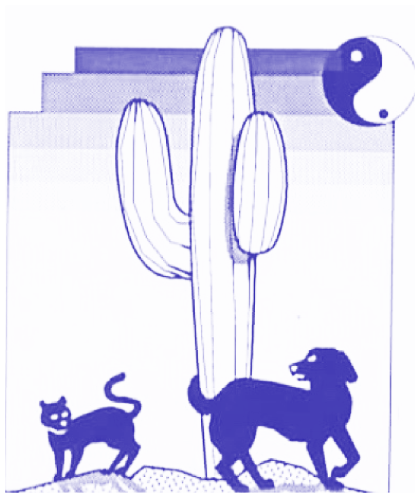How will you determine which homeopathic remedy I should give to my pet?
Homeopathy is very specific to the individual, not the name of the disease. For example, 10 dogs with “allergies” would likely all receive a different homeopathic remedy. Each patient expresses their symptoms differently - where on the body the itching is occurring? does it occur at a certain time of day or night? Is it associated with a hot or cold environment? What are the personality characteristics of the pet, and how does that change with the disease? Everything that has happened in the past is also important.
How are homeopathic remedies given to my animal?
Usually orally. No food for a few minutes before and after because the remedy must touch the mucous membranes. Sometimes, the animal is too aggressive or fearful. In those instances, we can give the remedy in their drinking water. For wild animals and birds, we can spray the remedy on their feathers or skin and they will groom themselves afterwards, ingesting the remedy.
What should I expect from homeopathic treatment?
Your pet may experience an immediate and perhaps dramatic improvement within hours to days. Your pet may experience gradual improvement over weeks or months. The speed of recovery depends in part on how long your pet has been sick. Your pet may not have any, or only a partial improvement and may require a different potency or remedy.
Are there any side-effects?
Homeopathy is a safe form of treatment in that there are no chemicals or drugs in the remedies so there are no side effects. There may be temporary aggravations after taking the remedy. While these might seem uncomfortable for your pet at the time, they are generally a very positive sign and are only a temporary part of the healing process. It is best to let them run their course as this leads to the quickest cure. There may be a discharge or other change as part of the healing process. This is particularly common where there has been some form of suppression in the past. The problem may be physical, e.g. diarrhea, eye, ear, nasal or skin discharge, or it may be behavioral, e.g. change in sleeping location, new fears, etc. This is healthy and is a sign that your pet is getting rid of accumulated “toxins.” It may be difficult to watch, but please interfere with it as little as possible. After successful constitutional therapy, the body often goes back and “cleans up” old problems that have never been properly resolved. Old complaints may resurface briefly, in reverse order from which they appeared, e.g. there may be a brief episode of straining to urinate if your pet had cystitis at some point in the past. It is very important not to interfere with these symptoms. Doing so will stop the curative process.
What do I need to know when my pet is being treated homeopathically?
- Homeopathic preparations are extremely safe because of their highly diluted form. Nonetheless, frequent repetition of a dose without the advice of a professional is not recommended.
- Remedies should not be taken together with food because this will interfere with their action. Give them at least ten minutes before or after feeding.
- Do not handle the remedy. Open the vial or envelope and shake the pill(s) directly onto the back of your pet’s tongue. If necessary the remedy can be mixed with a small amount of water or milk and administered with a dropper.
- Sometimes a worsening of your pet’s symptoms may occur. This initial aggravation is usually a good sign and indicates that the body is responding to the remedy. Although the physical symptoms might get worse for a short period of time, in general your pet as a whole should start to feel better almost immediately. The homeopathic aggravation will subside quickly followed by recovery.
- Do not give any other medications unless your veterinary homeopath has approved them. This includes topical salves (for the ears, skin or eyes) because they may suppress important symptoms and interfere with the remedy. Other homeopathic remedies, natural products, acupuncture, and magnet therapy can also sometimes interfere. Bach flower remedies, natural vitamins, some herbs, and chiropractic care work well with homeopathy. It is also extremely important that your pet have a fresh, natural diet and sufficient exercise.
- Vaccinations are not compatible with homeopathy. During active homeopathic treatment, your pet should not be vaccinated. Vaccines create their own imbalances within the body, and will interfere with the effect of the remedy. There are certain exceptions. Titers can be performed which will indicate whether certain vaccines are necessary.
How should I handle and care for homeopathic remedies?
Remedies will typically have an expiration date printed on the label. This is done only to satisfy FDA requirements. If the remedy/kit is handled properly, it will last indefinitely. Remedies made 20 years ago are just as effective as those made today, as long as they are handled properly. Keep remedies away from heat (eg: in the mailbox, in a hot car, in direct sunlight). It has been said that if you wrap the remedy kit in a down jacket, it helps to preserve them in the heat. Keep remedies away from a microwave oven - even when it is not on. Magnets inside the oven can ruin the remedy. Also keep remedies away from strong essential oils (eg: minty substances such as tea tree oil, strong peppermint, pennyroyal) and strong chemicals and cleaning products. Linen closets can be a good location to keep remedies.
